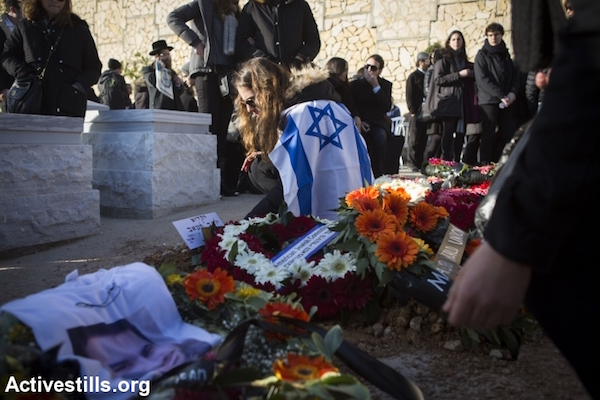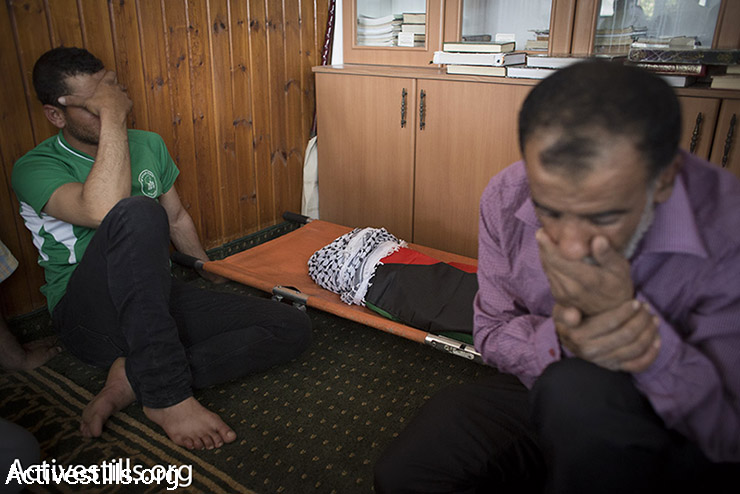The only thing that can stop the killing, that can turn desperate people from violence, that can stop the creation of new orphans, is hope. Unfortunately, it’s nowhere to be found.

The most tragic part about the violence that strikes civilians in Israel and Palestine is that it is largely preventable. That is not to say that the victims are in any way to blame for their own murders — of course not. But political violence is a direct result of the political conflict, of the occupation, incitement on both sides, and an utter lack of vision being offered to both Israelis and Palestinians.
There is no justifying the murder of four innocent people. Non-combatants. Parents. Civilians. Human beings. It might make those of us living inside the Green Line feel safer to point out that all four people murdered in the past 48 hours were killed on occupied land, but that is not the reason they were killed. They were killed because they are Israeli Jews, regardless of who they were as individuals. Likewise, the three members of the Dawabshe family, burned alive in their own home as they slept, were murdered not because of who they were as human beings, but because they were Palestinian.
Being murdered because of your nationality, or your ethnicity or religion is the same thing as being killed completely at random. And random violence is terrifying. Even more terrifying is the snowball effect random nationalist violence tends to have in Israel and Palestine. Price tag. Cycle of violence. Revenge attacks. Call it what you will.
Revenge attacks are a misnomer, however, because revenge is not really being sought on behalf of the victims, nor is it directed at the actual sources of violence. Revenge attacks in both Israel and Palestine erase the individual value and worth of each and every one of us as human beings. There are no human beings when it comes to revenge, there are only Jews and Palestinians. Revenge attacks don’t seek justice. They aim to satiate a national appetite for blood, to inflict pain.

So we are left with orphaned children, widowed husbands and wives, parents burying their children. Shouldn’t that pain be enough to stop everything we’ve been doing up until now and try everything under the sun to prevent the next death? Do we really believe that by forcing the “other” to suffer more than we have, that we can actually suffer less ourselves? Do we really believe that vengeance can free us of our pain?
There is no magic pill to stem the spilling of innocent blood of Israelis and Palestinians. Diplomacy has failed. Popular protest movements have resulted in momentarily impressive, but ultimately inconsequential changes. It is easy to argue that violence can be effective, but in the case of Israel and Palestine, it has done nothing but perpetuate suffering, injustice, and more violence.
The only thing that can stop the killing, that can turn desperate people from violence, that can stop the creation of new orphans, is hope. Hope will come from a vision for a better future, a leader or movement convincing enough to make people invest in that vision, and a viable pathway for securing it. None of those elements exist in either Israel or Palestine at the moment. One nation is ruled by a virtual monarch too scared to embark upon a new path. The other is ruled by a man so “visionary” that he has convinced himself there is nothing better to seek for his people.
The only plausible catalyst for a positive, paradigm-shifting change at this point is external pressure. Israel, the party with the most agency to create change, should it desire, has little incentive to alter the way it perceives its cost-benefit analysis. In the current situation, even as random political violence seems intolerable, the risks and sacrifices necessary for embarking upon a just peace don’t appear worthwhile to the majority of the public. The comfort of power and relative stability provided by the status quo of occupation simply feels safer for most Israelis than the risks inherent in change.
What will ultimately change Israel’s calculus so that it chooses to end the occupation? So that it chooses to do its part in ending the cycle of violence? One can only hope that the catalyst is diplomatic and economic pressure, and not more unspeakable violence.


